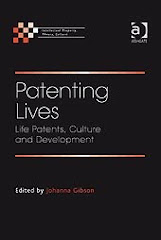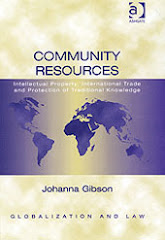 Following on from the story in "Seeded Players" (18 August 2009), Monsanto is again in the news over alleged anti-competitive behaviour. The New York Times reports today that DuPont and Monsanto are locked in a battle, with DuPont accusing Monsanto of anti-competitive practices, while Monsanto has retaliated saying DuPont has committed a "serious breach of business ethics."
Following on from the story in "Seeded Players" (18 August 2009), Monsanto is again in the news over alleged anti-competitive behaviour. The New York Times reports today that DuPont and Monsanto are locked in a battle, with DuPont accusing Monsanto of anti-competitive practices, while Monsanto has retaliated saying DuPont has committed a "serious breach of business ethics."In a letter obtained by Reuters, Monsanto chief executive, Hugh  Grant (pictured at right), requests DuPont chairman, Charles O. Holliday Jr. (pictured below left), to establish a special committee of DuPont's independent directors to investigate the matter. Meanwhile, Monsanto has released a statement in response to the increased negative press. The claims of corporate misconduct include allegations that DuPon
Grant (pictured at right), requests DuPont chairman, Charles O. Holliday Jr. (pictured below left), to establish a special committee of DuPont's independent directors to investigate the matter. Meanwhile, Monsanto has released a statement in response to the increased negative press. The claims of corporate misconduct include allegations that DuPon t provided financial support to critics of Monsanto and forged documents. But DuPont has stood fast saying that Monsanto has conducted itself anti-competitively to the detriment of farmers and others.
t provided financial support to critics of Monsanto and forged documents. But DuPont has stood fast saying that Monsanto has conducted itself anti-competitively to the detriment of farmers and others.
 Grant (pictured at right), requests DuPont chairman, Charles O. Holliday Jr. (pictured below left), to establish a special committee of DuPont's independent directors to investigate the matter. Meanwhile, Monsanto has released a statement in response to the increased negative press. The claims of corporate misconduct include allegations that DuPon
Grant (pictured at right), requests DuPont chairman, Charles O. Holliday Jr. (pictured below left), to establish a special committee of DuPont's independent directors to investigate the matter. Meanwhile, Monsanto has released a statement in response to the increased negative press. The claims of corporate misconduct include allegations that DuPon t provided financial support to critics of Monsanto and forged documents. But DuPont has stood fast saying that Monsanto has conducted itself anti-competitively to the detriment of farmers and others.
t provided financial support to critics of Monsanto and forged documents. But DuPont has stood fast saying that Monsanto has conducted itself anti-competitively to the detriment of farmers and others. And in May this year, Monsanto sued DuPont for patent infringement; in June DuPont retaliated with a countersuit in antitrust: "This case involves a scheme by Monsanto to monopolize agricultural biotech traits in corn and soybeans, and emerging combinations of such traits." Trait-stacking is where more than one trait (such as herbicide and insect resistance) is transferred to a crop, and so more than one gene. Cross-breeding of GM plants can achieve this as well as genetic engineering. The litigation follows a breakdown in a licensing arrangement between the two companies. DuPont claims it was entitled to combine the traits from Optimum GAT (DuPont) and Roundup Ready (Monsanto) under the terms of its licence. However, Monsanto argues that this is infringement of its patent and that "DuPont’s unauthorized use of our technology and patents is simply unacceptable."
However, the US Department of Justice Antitrust Division appears to have a different position. Indeed, investigations into several recent mergers in the industry have required significant divestitures, including that required of Monsanto and Delta & Pine Land, where a significant seed company and other assets had to be divested before the companies could proceed with their merger. The companies were also required to amend licensing agreements to respond to concerns with trait-stacking. Philip J Weiser, the Deputy Assistant Attorney-General, explains, "because DPL had had a license allowing it to "stack" a rival's trait with a Monsanto trait, Monsanto was also required to amend certain terms in its current trait license agreements with other cottonseed companies to allow them, without penalty, to stack non-Monsanto traits with Monsanto traits. As a result, producers of genetically modified traits gained greater ability to work with these seed companies."
Notably, the US Department of Agriculture and the US Department of Justice has announced that they will investigate antitrust concerns in the seed industry through a series of public workshops in 2010. In an address to the Organization for Competitive Markets two weeks ago, Weiser said, "Over the last twenty years, changes in technology and the marketplace have revolutionized agriculture markets, producing some substantial efficiencies as well as concerns about concentration. Notably, farmers today increasingly turn to patented biotechnology ... At the same time, this technological revolution and accompanying market developments have facilitated the emergence of large firms that produce these products, along with challenges for new firms to enter the market."
A lawyer for DuPont, Donald L Flexner, spoke to Reuters, "This is not just a DuPont problem. This is a competition problem. They've gained illegal monopoly power."
A lawyer for DuPont, Donald L Flexner, spoke to Reuters, "This is not just a DuPont problem. This is a competition problem. They've gained illegal monopoly power."



No comments:
Post a Comment